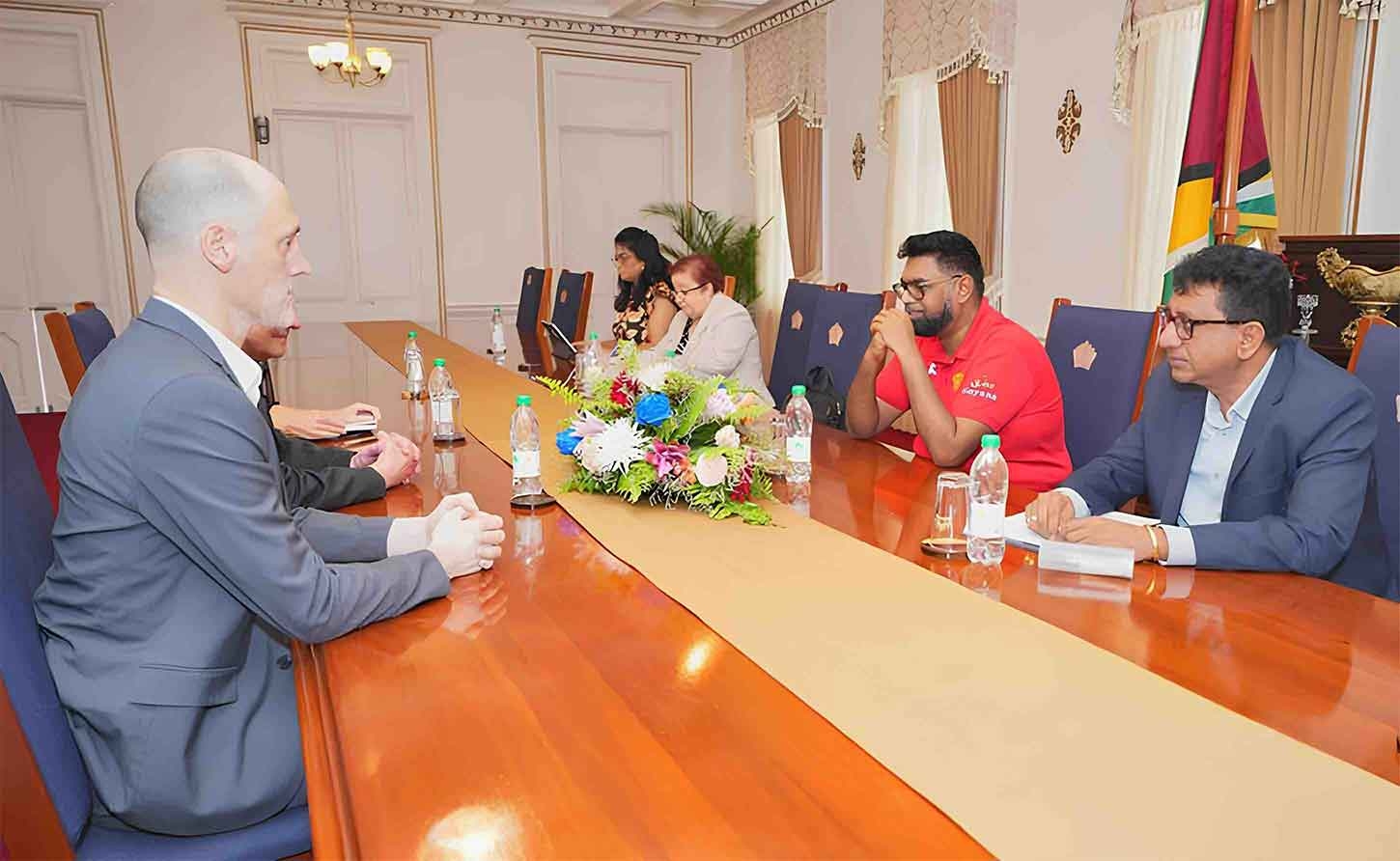GUYANA | Carter Center Critical of Guyana's Electoral Preparations Ahead of September Vote

MONTEGO BAY, Jamaica, August 19, 2025 - The Carter Center has issued a scathing pre-election assessment of Guyana's upcoming September 1 general and regional elections, highlighting significant concerns about electoral preparations and the political environment that could undermine the integrity of the democratic process.
In a comprehensive statement released August 19, the internationally respected organization's limited election observation mission identified multiple areas where Guyana's electoral framework and campaign environment fall short of international standards for democratic elections.
Ruling Party Advantages and State Resource Misuse
Among the most serious criticisms leveled by the Carter Center is the ruling party's systematic misuse of state resources and biased media coverage that undermines equitable treatment of candidates. The organization documented multiple allegations of the ruling party using state-owned vehicles for campaigning and exploiting "10-day workers" – part-time government employees – in campaign activities.
The Carter Center noted that official government statements about opening schools and public buildings regularly feature public officials "in full ruling-party regalia, blurring the line between the state and the party." The timing of certain government announcements has also raised eyebrows, including President Ali's promotion of over 2,800 Guyana Police Force officers since July 30 and the August 1 announcement that bridge crossings would become free.
"These and similar measures can be seen to afford the ruling party an unfair advantage," the Carter Center stated, noting that while such spending may not violate Guyana's laws, it runs contrary to international standards designed to ensure a level playing field.
Electoral Commission Communication Failures
The Guyana Elections Commission (GECOM) came under particular scrutiny for its poor communication with the public and political parties. The Carter Center found that while GECOM issues regular press releases and maintains social media presence, it fails to engage effectively with stakeholders beyond the two main parties.
More troubling is GECOM's lack of a legal officer, forcing the commission to sometimes seek advice from the Attorney General – a political appointee who is himself a candidate in the elections. This arrangement raises serious questions about conflicts of interest and the commission's impartiality, according to the observers.
The Carter Center urged GECOM to clearly communicate tabulation procedures to enhance public confidence, particularly given widespread lack of understanding about the new decentralized tabulation process introduced since 2020.
Political Participation Under Threat
Perhaps most concerning are reports of an "atmosphere of fear" among public sector workers, local business owners, and community members who worry about losing jobs or economic opportunities if they don't support the ruling party. The Carter Center documented specific instances where a Guyana Sugar Corporation employee and a police corporal were apparently transferred after encounters with opposition candidates.
The situation has been exacerbated by what the Carter Center characterizes as bank "overcompliance" with U.S. sanctions. Following the sanctioning of We Invest in Nationhood (WIN) presidential candidate Azruddin Mohamed for corruption, local banks closed personal accounts of approximately 40 WIN candidates and party members, while some were dismissed by private employers for appearing on the party's candidate list.
The Carter Center emphasized that international standards recommend a "risk-based approach" to such matters and that "mere political association, without evidence of prohibited transactions, does not constitute proper basis for termination of accounts."
Incomplete Reforms and Voter List Concerns
While acknowledging positive legal reforms since 2020, particularly in tabulation and voter registration procedures, the Carter Center noted that "the majority of recommendations made following the 2020 election remain unaddressed." The new legal framework changes are not well understood by civil society and opposition parties, creating additional challenges.
Significant concerns persist about the voter list, which contains 757,690 registered voters. The Carter Center noted that the 2022 census results have not been released, making it impossible to assess the relationship between population demographics and voter registration numbers. While the organization found no evidence of voter roll inflation, the lack of transparency fuels public suspicion.
Code of Conduct and Campaign Environment
The Carter Center expressed disappointment that only four of six political parties signed the Ethnic Relations Commission's code of conduct for peaceful campaigns. Two major parties – A Partnership for National Unity (APNU) and Forward Guyana Movement (FGM) – refused to sign, undermining efforts to ensure peaceful electoral participation.
While campaigning has been generally peaceful, the observers noted concerning incidents including removal and replacement of party flags, delays in police approval for some parties' campaign events, and reports of the WIN presidential candidate being denied airline service and access to public venues.
Media and Information Access
The Carter Center also criticized limited access to public information, noting that state media coverage appears biased toward the ruling party. Several opposition parties reported limited access to state media, with their events receiving little coverage, and one party alleged they were denied opportunities to place advertisements in state outlets.
The cumulative effect of these shortcomings – from the unreleased census to limited campaign finance transparency and obstacles faced by media in obtaining public information – constitutes what the Carter Center called "a lack of adequate public access to election-relevant information."
Looking Ahead
The Carter Center's assessment paints a picture of an electoral process that, while improved in some technical aspects, remains compromised by systematic advantages for the ruling party and restrictions on opposition participation. As Guyana heads toward its September 1 election, these concerns raise serious questions about whether the vote will meet international standards for free and fair democratic elections.
The organization has committed to issuing additional reports, including a preliminary assessment shortly after the election and a comprehensive final report with recommendations for future improvements.
-30-
